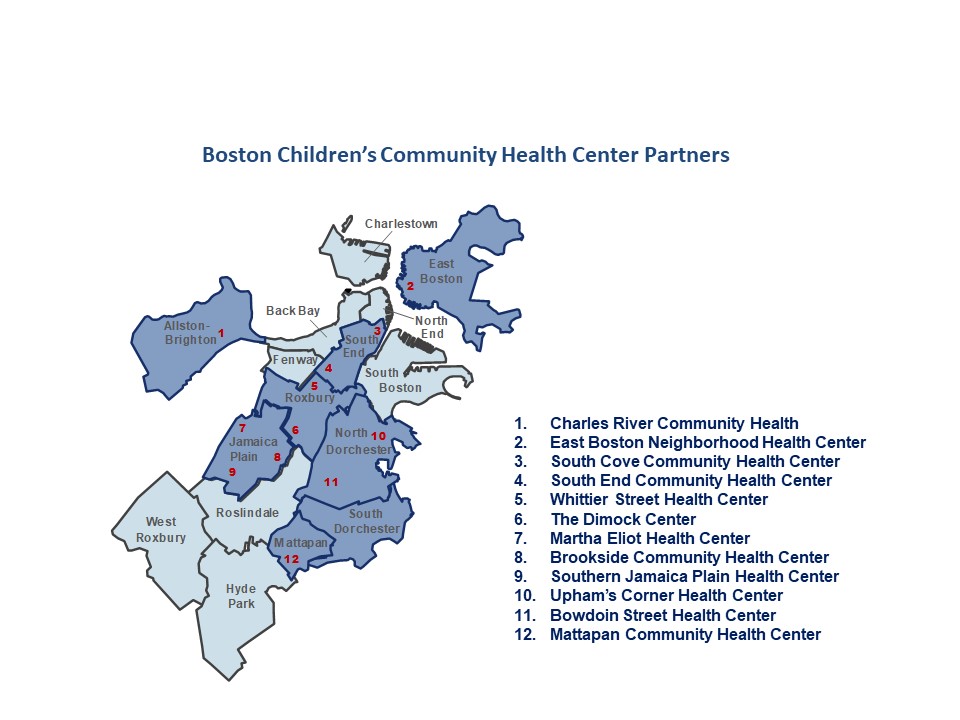
Community health centers are best positioned in their communities to provide primary and preventive care to children and families. Health centers serve another special purpose — to be a resource and an anchor in their neighborhoods; bringing together families and establishing connections with other local organizations serving the same community.
Community health centers deliver low-cost, effective, pediatric care in settings that meet the needs of patients from Boston’s diverse neighborhoods. Health centers face many of the same challenges as other hospitals and private practices in caring for patients. Yet, community health centers experience challenges magnified by a variety of factors. More than 50 percent of the children in Boston receive care in community health center settings. This population has the same needs as other pediatric populations for a wide range of primary and specialty care services. However, these children and their families often have a higher need for health and social services due to the complex challenges in their social, cultural, economic, and physical environment.
Health centers are also well-connected to other neighborhood and community partners that provide health and other social supports for children and families. These sites are experts at leveraging partnerships in the local neighborhoods to provide families with the resources they need to live healthy, independent, and fulfilling lives.
Boston Children’s has affiliations with 11 Boston community health centers. In addition, it owns and operates the Martha Eliot Health Center in Jamaica Plain. Our strategy is to build capacity and support the growth of Boston community health centers to provide the best care and resources for children and families — by delivering high-quality care, and connecting families to essential social and family resources.
- Our partner health centers receive funding and technical assistance from Boston Children’s to support and build the capacity of pediatric practices.
- Health centers address the most pressing health needs in their communities: asthma, mental/behavioral health, obesity, and child development, by developing and/or collaborating to implement evidence-based programs.
- Our partnership brings them together to implement a collaborative, case-management model to manage and prevent childhood obesity. Case managers (also known as resource coordinators) support children who have been identified as overweight or at risk. Support is also provided to their siblings and other families struggling with food insecurity. Case managers link families to resources for fresh and healthy food, nutrition counseling and education, cooking classes, and physical activity opportunities.
Visit the programs and partners page on our website for more details about the community health centers that Boston Children’s is affiliated with.
